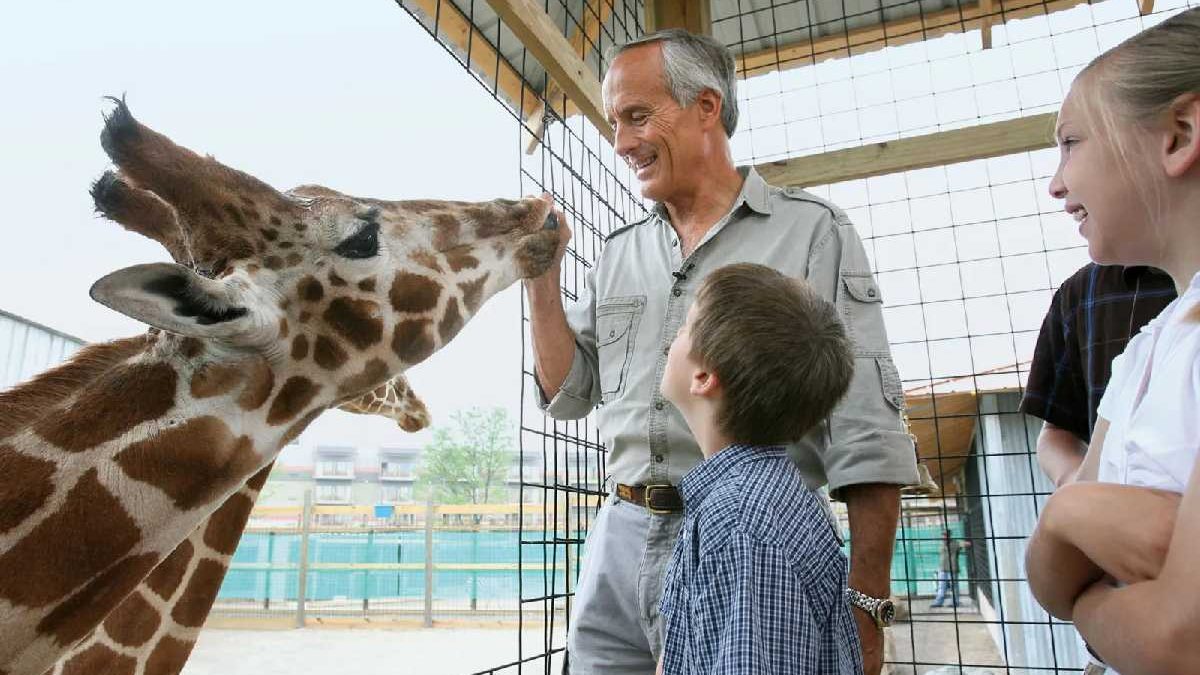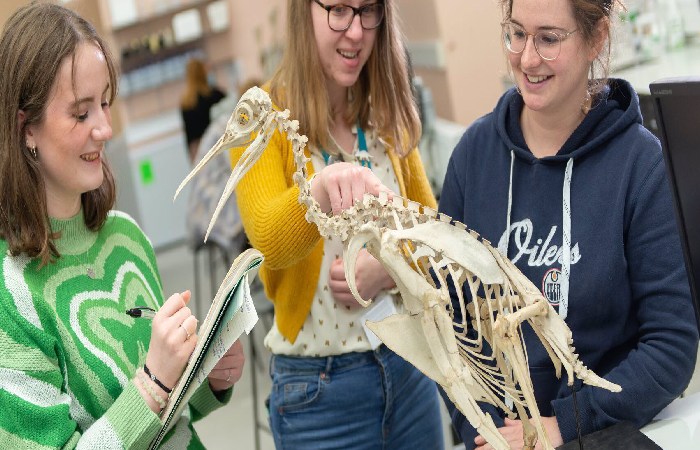Table of Contents
How to Work in a Zoo? – Introducing
How to work in a Zoo is the branch of biology that studies animals and the animal kingdom. It is also known as animal biology. Zoology study includes the interaction of animal kingdoms in their ecosystems, such as classification, habits, structure, embryology, supply, growth, and extinct species.
The zoo is the division of ecology that deals with an animal monarchy. It is a scientific study related to the entire species of animal kingdom. An ancient Greek philosopher, Aristotle, was the first person to classify living things in the 4th century BC broadly. Firstly he divided alive things into animals and plants and continued with his further classifications. Later, words like biology, botany, and zoology came into existence.
Later, Aristotle divided creatures into two classes, one with red blood and another without, such as insects and crustaceans. Then, he further classified people into those who could walk, flow and swim.
The classification by Aristotle was tracked until the 16th time, during the Age of explanation, scientists finally began to explore thoroughly. Now, zoology has become much more compound, where the living things are separated into five kingdoms, in which animal kingdoms are divided into several more minor categories of Phylum, Class, Order, Family, Genus, and, finally, Species.
Natural selection synthesized these developments in Charles Darwin’s theory of evolution. In 1859, Charles Robert Darwin presented the idea of organic evolution and its observational evidence.
Branches of Zoo
The study of animal life is antique, but its technical personification is quite current. Until the comparative functional study on morphographs by Hunter and Cuvier, the current areas of zoological investigations have occurred.
Historical Background
A prehistoric person’s survival as a hunter defined his relation to other animals, which were a source of food and danger. As man’s cultural heritage developed, animals were variously incorporated into man’s folklore and philosophical awareness as fellow living creatures. Domestication of animals forced the man to take a systematic and measured view of animal life, especially after urbanization necessitated a constant and ample supply of animal products.
The study of animal life by the ancient Greeks became more rational, if not yet scientific, in the modern sense, after the cause of disease—until then thought to be demons—was postulated by Hippocrates to result from a lack of harmonious functioning of body parts. The systematic study of animals was encouraged by Aristotle’s extensive descriptions of living things, his work reflecting the Greek concept of order in nature and attributing to nature an idealized rigidity.
In Roman times Pliny brought together in 37 volumes a treatise, Historia Naturalis, which was a comprehensive compilation of both myth and fact regarding celestial bodies, geography, animals and plants, metals, and stone. Volumes VII to XI concern zoology; volume VIII, which deals with land animals, begins with a giant elephant. Although Pliny’s approach was naïve, his scholarly effort had a profound and lasting influence as an authoritative work.
There are around a hundred spaces dedicated to animal care between zoos, parks, reserves, and interpretation centers in Spain. All of them offer fantastic job offers. It is possible to find a position full of dynamism and accessibility, even if your career has not focused on the veterinary world until now. This doesn’t mean that training is not essential, since a good Veterinary Assistant Course is important, but there are many other points that you must take into account. Don’t know how to work in a zoo? Know what you need!
What to study to find a job in a zoo?
To function correctly, zoos employ a multitude of specialized workers. The staff of these establishments includes veterinarians, nutritionists, biologists, and the teams responsible for finances, communication, or dealing with the public.
Among these profiles, one of the most demanded is that of a caregiver, who is in charge of tasks such as meals and hygiene of animals, which provides support to clinical doctors. Currently, the position does not require a specific qualification, but, without a doubt, you will have to have some knowledge about fauna if you want to increase your chances of finding a job.
Specialized courses will provide you with the necessary training to work in a zoo
If you are interested in the University, you can consider pursuing a career in Veterinary Medicine, Biology, or even Environmental Sciences. However, considering how to work in a zoo, there are paths beyond the four-year study degree.
Many of the active professionals have previously taken veterinary courses at a center. One of the ones that best fit this kind of vacancy is that of Veterinary Technical Assistant, which will open the doors to both zoos and clinics and stores or animal reserves.
What characteristics should your study plan have?
Working in a zoo requires ensuring the well-being of the species that make it up. It would help if you looked for a program that provides you with solid foundations for its care. It reviews the generic and specific needs of the usual animals in this type of enclosure. Check that the syllabus includes the main branches in which they are classified (mammals, birds, fish, reptiles, and amphibians).
Human Resources departments will value your profile more if you know their anatomy, the diseases they suffer from, and the best way to tackle them. Part of your duties will be to take samples and intervene in the spaces they reside, so it is also essential that you know how to handle them safely.
Make sure the curriculum covers the roles of a caregiver and try to include internships
Finally, we advise you to look to the future and choose your specialization course with some perspective. And is that parks and centers dedicated to nature play a vital role in the recovery of threatened populations.
Controlling the reproductive cycles of the different species will help you find your place in, for example, breeding programs. That learning includes practice is another of the points that we highlight. The most in this small guide on how to work in a zoo. Discover the syllabus of the Veterinary Technical Assistant Course
How to work in a zoo: tricks to increase your opportunities
Once you have the necessary training, it will be time to get going and start looking for a job. If your study plan incorporates a job bank. The process will be more straightforward for you. But your proactivity will be vital to finding your place in the workforce.
We have compiled a series of steps with everything you can do to enrich your resume and guide you more deeply on how to work in a zoo. You will be closer to hiring with a good course as a base and our itinerary.
Learn languages
Knowing other languages is never too much, and less so as a caregiver. Think that zoos are usually tourist spots, so it will not hurt you to control languages like English. Even if it’s only at a basic level. In this way, you can easily talk to foreign visitors to the center and make sure they understand and comply with your instructions.
Increase your physical resistance
How to work in a zoo? One of the answers may surprise you, “training,” but it is. Human Resources departments will value your stamina and agility because you will daily contact with wild animals. You will need to be able to protect yourself if they react unexpectedly and control them with integrity if your integrity does not endanger them.
Explore the websites of zoos
Most centers, parks, and shelters have a website. We invite you to dive into them to understand. The qualities they are looking for in profiles like yours and continue improving.
Do not forget that, in addition, these pages have specific sections to which to attach your resume. Avoid generic messages when you contact them and point out the zoos to which you have sent a message. Thus, you will not repeat yourself, and you will be able to see at a glance where each one is located if you receive a call.
Venture into volunteering
We pointed out before that experience is necessary, and any opportunity to expand it will be a plus. One way to achieve this is through volunteering. Participating in NGO campaigns and projects, or offering to work for free in shelters or similar centers.
Unless they have too much, few people refuse help, so you won’t have much trouble training your skills. The National Association of Friends of Animals, for example. Offers its volunteers the possibility of participating in rescues. caring for animals, or managing feline colonies and the one in Sipadan requires. Help to take care of dogs and transport them and distribute pamphlets. This can undoubtedly be an excellent first step if you have commitment and desire.
Conclusion
Some people go on to become zoologists after getting a bachelor’s degree in biology or a related field. They combine a degree in biology with animal work and may go on to get a master’s or doctorate specifically in zoology. However, some colleges do offer bachelor’s degrees specifically in zoology. Zoology bachelor’s degree programs involve general classes in the basic sciences– biology, chemistry, physics, and math– and also involve upper-level classes on a variety of subjects, from animal science to microbiology to wildlife ecology.





